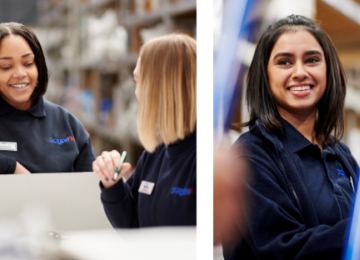Black History Month - Allyship
Hi all, My name is Jo and I work in HR here at Screwfix. This month is Black History Month and I wanted to speak a little today about being an Ally and what 'Allyship' means to me.
What does being an ally mean to you, and why do you think it's important?
Being an ally, to me, means actively supporting underrepresented groups, even if you don't belong to those groups yourself. It's important because it promotes equality & inclusion. Being an ally to Black colleagues means actively supporting and advocating them, this could be behind the scenes such as promoting events to colleagues, sharing education & learning opportunities with senior leaders, in my case the Retail Directors. Recent example would be Black inclusion week and Race Equality Week. Encouraging them to learn, listen and take part.
In your opinion, what are some key qualities or actions that make someone a good ally?
Key qualities of a good ally include empathy, active listening, a willingness to learn and the courage to speak up when something isn’t right. For me it’s also about being reliable and acting with integrity, being an ally means that you have to actively put yourself out there to understand the unique challenges underrepresent colleagues face. Self-awareness and really understanding what privileges you have been afforded that you may not even have considered previously helps.
How do you stay informed and educate yourself about issues affecting underrepresented communities?
I stay informed by following diverse voices on social media, LinkedIn such as John Ameachi, reading books, now it’s Stephen Barlett and articles I come across, participating in workshops, webinars, or training sessions such as Race Equality Matters, Black Inclusion Week, Black Business Week. It's an ongoing process of self-education continuous education, this is essential for being an effective ally.
What advice would you give to someone who wants to become a better ally but doesn't know where to start?
I would encourage them to start by actively listening to the experiences of underrepresented colleagues, asking questions with genuine curiosity, and seeking out resources for education. Remember that it's okay to make mistakes; the important thing is to learn from them and keep pushing for positive change. Remember that allyship is an ongoing commitment.



